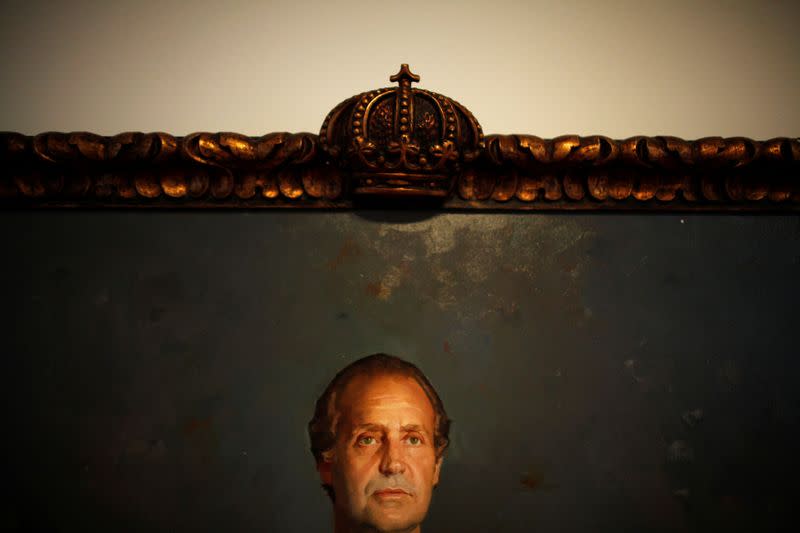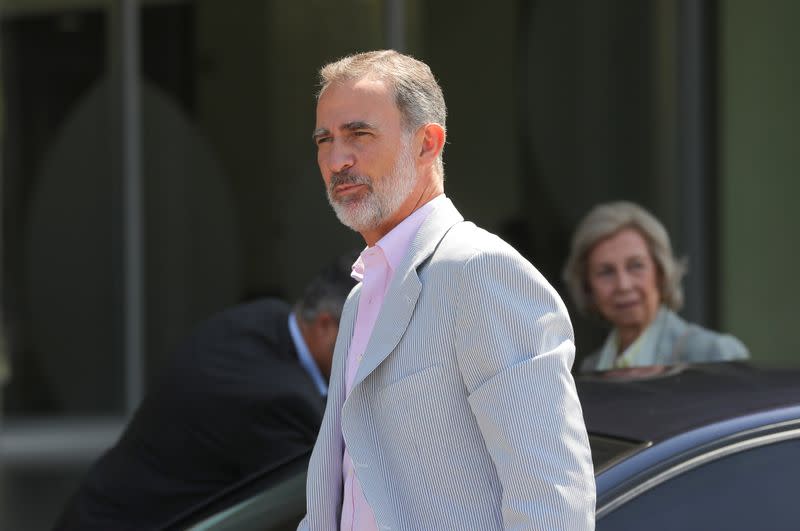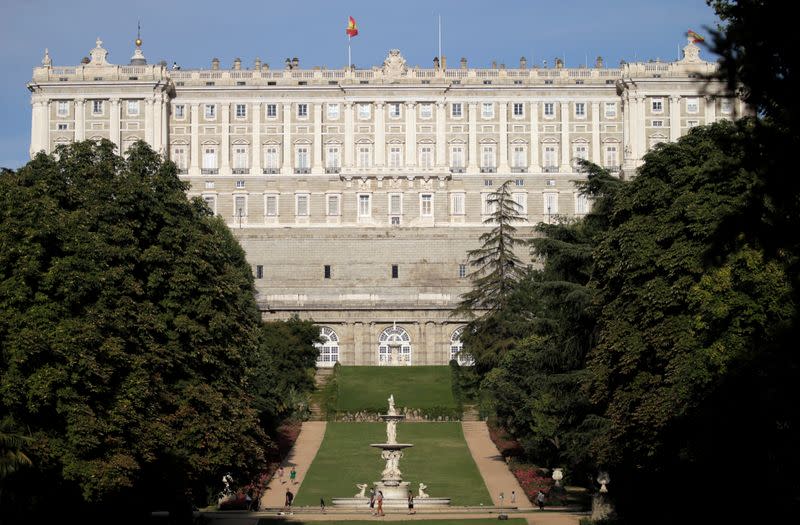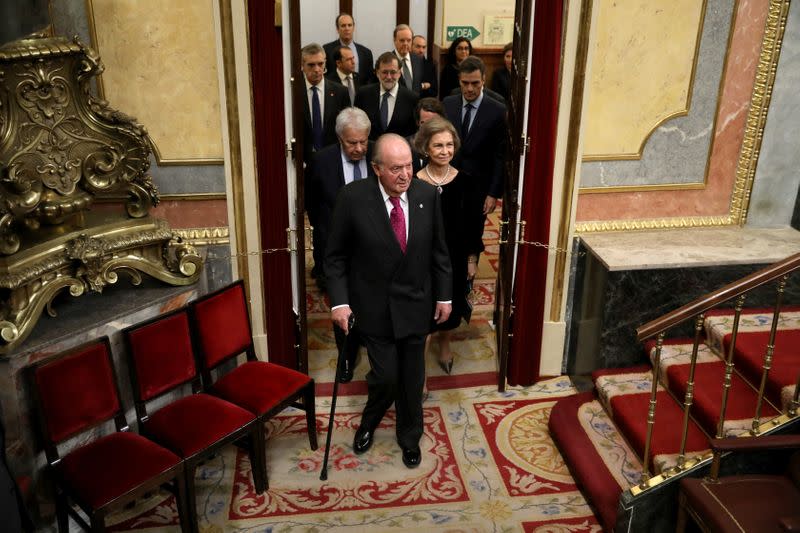Spaniards ask where Juan Carlos has gone after ex-king leaves country
By Marco Trujillo and Nathan Allen
MADRID (Reuters) - Spain's former king Juan Carlos has gone to the Dominican Republic after abruptly leaving his home country under a cloud of scandal, several Spanish newspapers said on Tuesday, though one placed him in Portugal.
The royal palace said on Monday that Juan Carlos, who abdicated in 2014 over a previous scandal, was leaving so that his personal affairs would not overshadow his son King Felipe's reign, in a statement that stunned Spaniards.
The palace did not say where the 82-year-old went, triggering intense speculation about his whereabouts.
Adding to the confusion, RTVE broadcaster, citing unnamed sources close to Juan Carlos, said the former monarch wanted to return to Spain soon and El Mundo quoted an anonymous person close to him saying he may come back in September.
Pressure had been building on Juan Carlos and Felipe to take action to protect the monarchy, after Spanish and Swiss prosecutors started examining allegations of bribes relating to a high-speed rail contract and reports of offshore accounts.
Juan Carlos came to the throne in 1975 after the death of General Francisco Franco and was widely respected for his role in helping guide Spain from dictatorship to democracy, but recent scandals have tarnished his image.
"I think he's running away like a coward. He should admit what he has done and be up front," said Madrid resident Paz Rodriguez.
Retiree Santiago Pradas was more understanding. "They're not being fair. There are many politicians, many parties, who have stolen three times as much," he said.
DOMINICAN EXILE?
Juan Carlos' lawyer said on Monday the ex-king was "at the disposal" of prosecutors. Neither the lawyer nor the Royal House have commented on whether Juan Carlos has left Spain or where he is. Via his lawyer, the ex-king has repeatedly declined to comment on the corruption allegations.
La Vanguardia said Juan Carlos, who is keeping the title of King Emeritus, left the palace on Sunday, before going to Portugal by car on Monday and flying on to the Dominican Republic.
The former monarch plans to stay for a few weeks with a family who made their fortune in sugar plantations, the newspaper said, without citing a source.
The ABC newspaper also said Juan Carlos had gone to the Caribbean country. However El Confidencial said he was in Portugal, not far from Lisbon.
Authorities in the Dominican Republic and Portugal said they had no news of his whereabouts.
While prosecutors in Geneva and Madrid are looking into offshore accounts and possible bribes, Juan Carlos is not formally under investigation in either country and so is not technically a fugitive.
The Geneva prosecutor's office did not respond to a request for comment. In Spain, the Supreme Court's prosecutor's office said it was carrying on with its investigation, adding that Juan Carlos' decision to leave changed nothing.
Switzerland classifies the Dominican Republic as a country with which judicial cooperation is "very difficult", but Spain has an extradition agreement with it.
"EVADE JUSTICE"?
Many of Spain's newspapers sought to defend the former king's achievements.
"The disappointing ... conduct by Juan Carlos in the last years of his reign cannot make us forget his irreplaceable contribution to Spaniards' progress and freedom during close to half a century," the left-leaning El Pais said in an editorial, adding that it would be irresponsible to launch a debate on the monarchy now because Spain needs stability.
Prime Minister Pedro Sanchez said he respected the royal household's decision.
"Institutions should not be judged, people should be judged. In this case, Juan Carlos has said clearly he is at the disposal of the legal system if necessary, just like any other Spaniard," he told a news conference.
His leftist Podemos allies took a much harsher stance, saying Juan Carlos was "trying to evade justice" and putting the future of the monarchy in question.
Jose Juan Toharia of polling firm Metroscopia said the royal household's handling of the situation would go down well with Spaniards, because Juan Carlos had said he would answer any legal case and Felipe inspires the trust of 70% of the population.
(Reporting by Isla Binnie, Marco Trujillo, Michael Gore, Miguel Gutierrez, Nathan Allen, Joan Faus, Catarina Demony, Paola Luelmo, Emma Farge, Ezequiel Abiú López, Elena Rodriguez, Andrei Khalip; Writing by Ingrid Melander; Editing by Giles Elgood and Alexandra Hudson)








